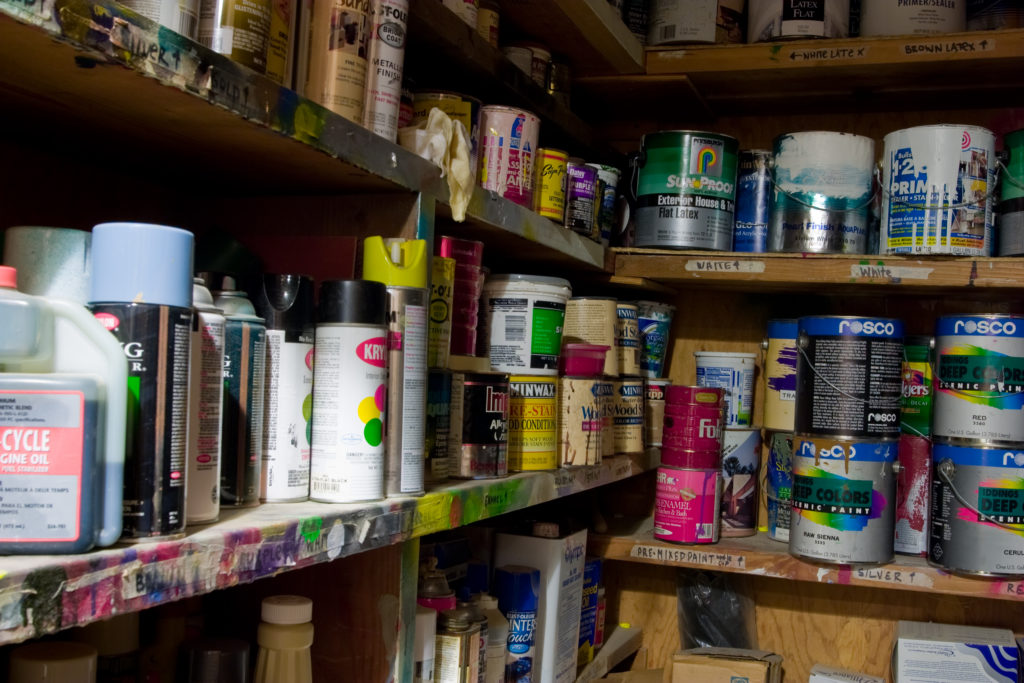What are household hazardous wastes?
Household hazardous waste (HHW) refers to chemical wastes and materials typically used within a household such as paints, cleaning solutions, oil, batteries, and pesticides. Since these wastes and materials may be corrosive, toxic, or flammable, they should be disposed of at a HHW facility instead of with household garbage.
All of the following materials are considered HHW and must be disposed of at an HHW facility:
- Automotive fluids (antifreeze, fuels, motor oil)
- *Batteries (home, car, cellphones)
- *E-Waste (televisions, computers, printers, etc.)
- *Fats/Oils/Grease (FOG)
- Fertilizers and Pesticides
- Fuels
- Household Cleaners
- *Light Bulbs
- Medicines/Prescription Drugs/Needles & Sharps
- Paint Products
- Polishes and Waxes
- Pool and Spa Chemicals
- Propane Cylinders (must be smaller than 5 gallons or 20 pounds)
- Small appliances
- Thermometers
* Universal Waste Items. Read more below.

Where should I dispose of these items?
It’s easy! If you’re a Lincoln resident, drop off HHW for FREE at the household hazardous waste facility located at 3195 Athens Avenue. Quantities are limited to 15 gallons or 125 lbs per visit. Did we mention it’s FREE?
The City of Lincoln offers a complimentary pickup of used and unwanted Universal Waste items to Lincoln residents every Wednesday. Residents need to call the Public Works main line at (916) 434-2450 to schedule an appointment. The Wednesday pickup days fill up fast! Residents are encouraged to call early to get their appointment on the calendar.
Universal Waste Items Include: fluorescent tubes, lamps, thermostats, thermometers, oil filters, used oil, batteries (household/car), TV’s, computers, printers/fax machines, Fats/Oil/Grease (FOG), cell phones, and basically anything that has a plug.
To schedule your free Universal Waste pickup, call (916) 434-2450.
Why can’t I just throw these items in the trash?
It is illegal in California to toss HHW into the trash. In addition, disposing of HHW incorrectly poses health risks to humans, pets, the environment, and our waterways.
Find out about toxic items and HHW and why it’s so important to store and dispose of these items safely and properly here.

